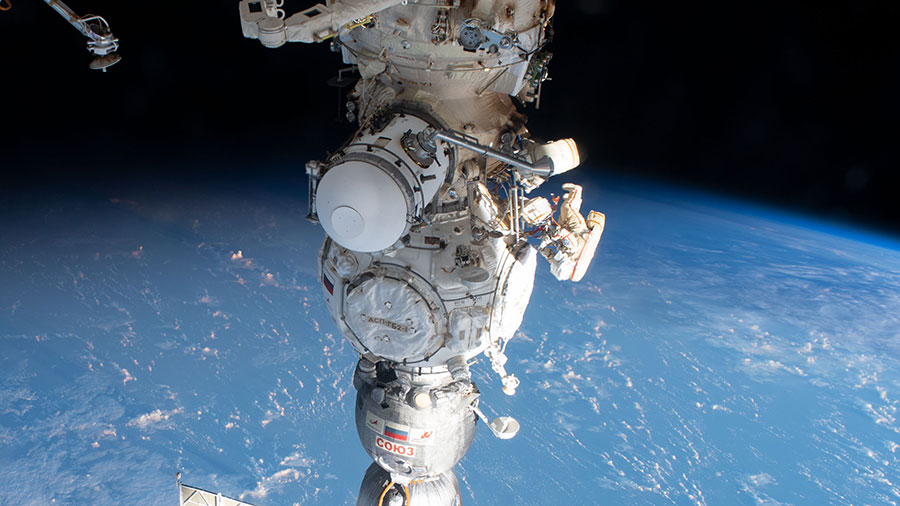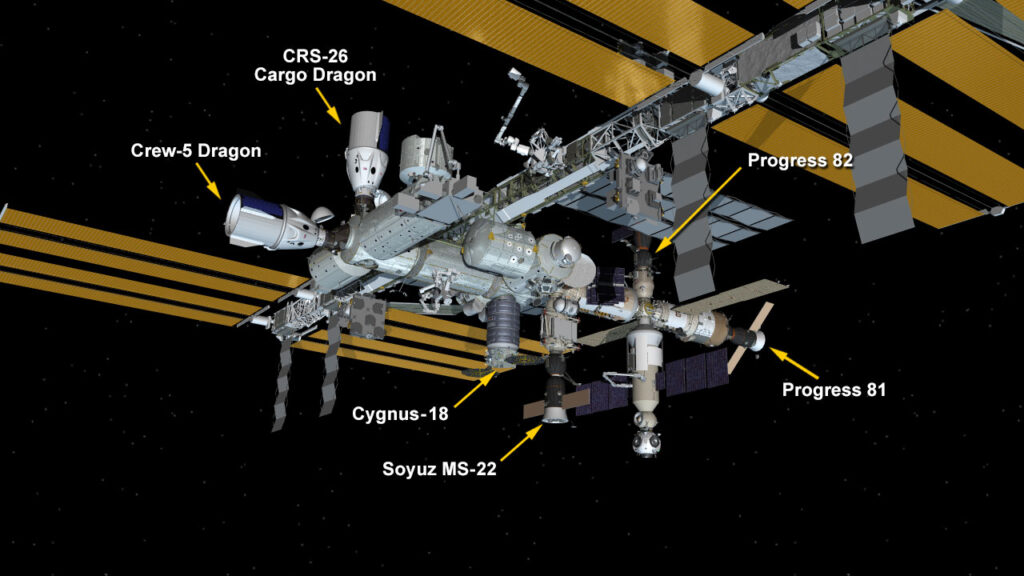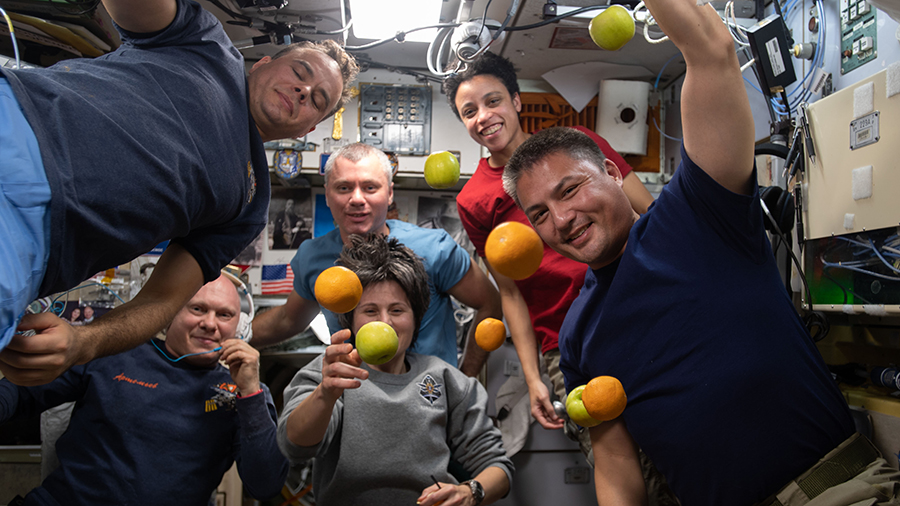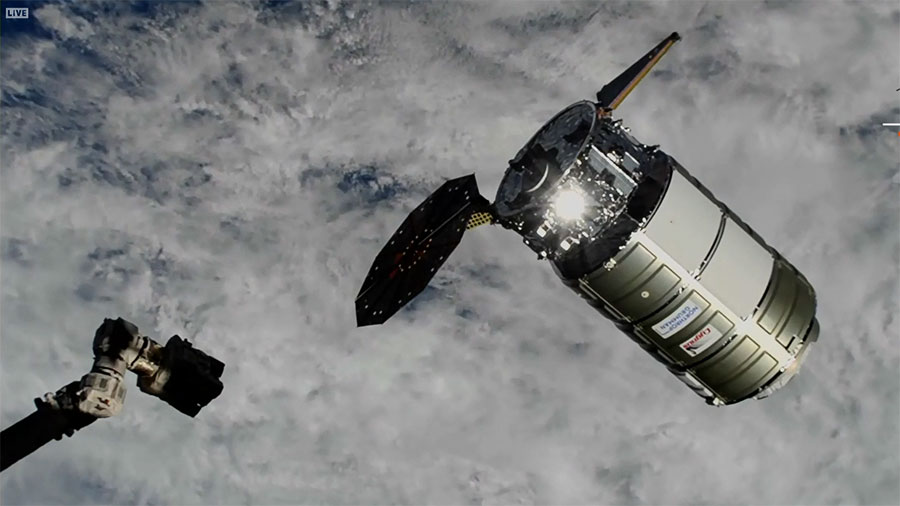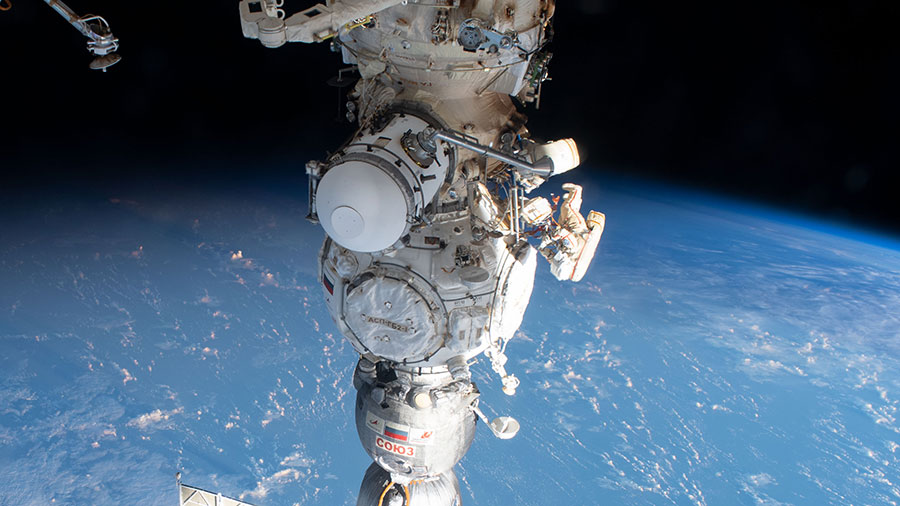
Stem cells and space botany were the top research objectives for the Expedition 69 crew on Tuesday while still working to unpack a new U.S. cargo craft. Two cosmonauts are also “go” to exit the International Space Station on Wednesday for more upgrades on the orbital lab.
Life science in microgravity enables researchers to observe biological phenomena and achieve unique insights that would be impossible in Earth’s gravity environment. Scientists then apply the new knowledge potentially improving a variety of Earth-bound conditions including human health and agriculture.
Two experiments aboard the station today addressed new cancer therapies and ways to grow crops in space. NASA Flight Engineer Frank Rubio worked in the Kibo laboratory module servicing stem cell samples for the StemCellEX-H Pathfinder study that seeks to improve therapies for blood diseases and cancers such as leukemia. UAE (United Arab Emirates) astronaut Sultan Alneyadi harvested leaves from thale cress plants that are similar to cabbage and mustard for the Plant Habitat-03 experiment to learn how to grow food and sustain crews on future space missions.
NASA astronauts Stephen Bowen and Woody Hoburg focused their day primarily on orbital maintenance. Bowen replaced air filters in the Destiny laboratory module while Hoburg monitored the performance of the advanced resistive exercise device for troubleshooting in the Tranquility module. The duo also had time set aside for some science activities as Bowen processed his blood samples for analysis and Hoburg tested station potable water samples for quality.
All four astronauts continued unpacking some of the 8,200 pounds of science and supplies delivered aboard the Cygnus space freighter on Friday. Cargo activities will be ongoing until late October when Cygnus departs the station completing a three-month orbital stay.
Two cosmonauts are ready to begin the 10th spacewalk at the station this year to install orbital debris shields and relocate hardware on the orbital outpost’s Roscosmos segment. Commander Sergey Prokopyev and Flight Engineer Dmitri Petelin have completed their procedure reviews and Orlan spacesuit configurations and will begin a six-and-a-half-hour spacewalk at 10:45 a.m. EDT on Wednesday. NASA TV, on the agency’s app and website, begins its live spacewalk coverage at 10:15 a.m.
Flight Engineer Andrey Fedyaev will support the two spacewalkers on Wednesday as he commands the European robotic arm (ERA) from inside the Nauka science module during the planned six-hour and 30-minute excursion. Fedyaev started his day joining Prokopyev and Petelin for the final spacewalk procedures review. He then spent the rest of the day configuring the ERA preparing it for hardware transfers during Wednesday’s spacewalk.

